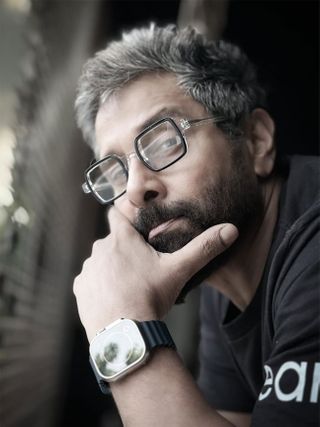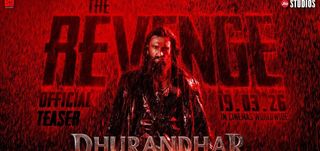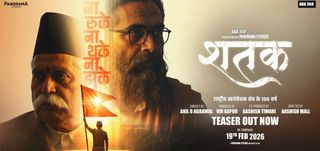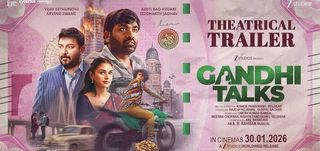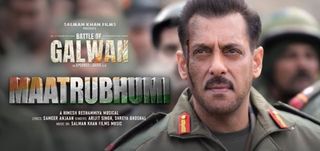Viruddh Movie Review
You know the film has you hooked completely when the characters in this domesticated drama about the joy and trauma of a middle class family begin to matter to the audience... So much so that by the time the second half begins you want to put the clock back, scream to the storywriters to please, please keep unhappiness out of this feelgood mellow-drama.
But joylessness is a preponderant objective in all films about domestic harmony. In Mahesh Bhatt's rightly celebrated "Saraansh", a Maharashtrian patriarch fought back his tears and fears when his son was killed in a random incident.
In "Viruddh", Amitabh Bachchan towers above everyone and everything, including the occasionally-staccato script, to deliver a bludgeoning performance as Vidyadhar Patwardhan, a retired man content squabbling with his domineering wife (Sharmila tagore) and the weekly call to their only son in London... until the son dies.
The sequences showing Vidyadhar's rapport with the world within his well appointed home and outside is remarkable for its lived-in warmth. Once John Abraham (endearingly dimpled as the ideal son) arrives with a half-foreign girlfriend, the film makes you even more aggressively a part of its idyllic scenario.
Not only with his wife and son, but the rapport that Vidyadhar gradually establishes even with the Muslim car mechanic (Sanjay Dutt) is done with dollops of theatrical reality... and never mind the over-punctuated scene-ends, never mind the camera movements that suggest Hindi cinema's close affinity to Marathi theatre... never mind the appalling background music.
"Viruddh" still makes a powerful enough statement on familial values. Director Mahesh Manjrekar punctuates his narrative with details from everyday life. These might not be as sharply etched as they are in Ram Gopal Varma's "Sarkar". But "Viruddh" nonetheless captures the rhythms and cadences of everyday life with a fair degree of conviction and far less flamboyantly than "Baghban".
Things start to go wrong after the son's murder, and not just for the Patwardans. The entire endgame with hypocritical politicians and corrupt cops is mired in artifice. You wish Manjrekar had kept the contrivances at a distance in a film, which, in its best moments, echoes the very essence of life.
By the time Vidyadhar takes to the gun for self-justice you are squirming in your seat at the compromises that the script imposes on the fine and vivid protagonist. Vidyadhar's critical sequence with his son's powerfully-placed killer in the latter's office is so clumsily weighed against the adversary, so consciously designed to spotlight the tyranny of villainy, that you wonder why Manjrekar allowed his gentle elegiac tale to lapse from lyricism into theatricality.
The film's leading man lights up the blind spots in the narrative with candour and credibility. There seems to be no end to the surprises that this incredible man of all seasons can offer in a part that has been done to death by any and every one from Dilip Kumar in "Mashaal" to Anupam Kher in "Saraansh".
As played by Bachchan, Vidyadhar is cranky and cool, petulant and passionate, adamant and accommodating. There are many episodes where the actor goes beyond the script and the cues provided by his co-stars.
Bachchan not only holds up his own character. Very often he can be seen propping up his co-star Sharmila Tagore's character and her emotional graph. Surprisingly Bachchan's on-screen rapport with his screen-son John Abraham, daughter-in-law Anusha, the friendly car mechanic Sanjay Dutt and even the cop Sachin Khedeker (giving a finely tuned performance as the cop caught in a terrible dilemma of morality and power play) is far more tangible and agreeable than his tuning with his screen wife.
You miss that spousal succour and erotic bantering with Hema Malini in "Baghban" or even the quiet flow of empathy with Supriya Pathak in "Sarkar".





